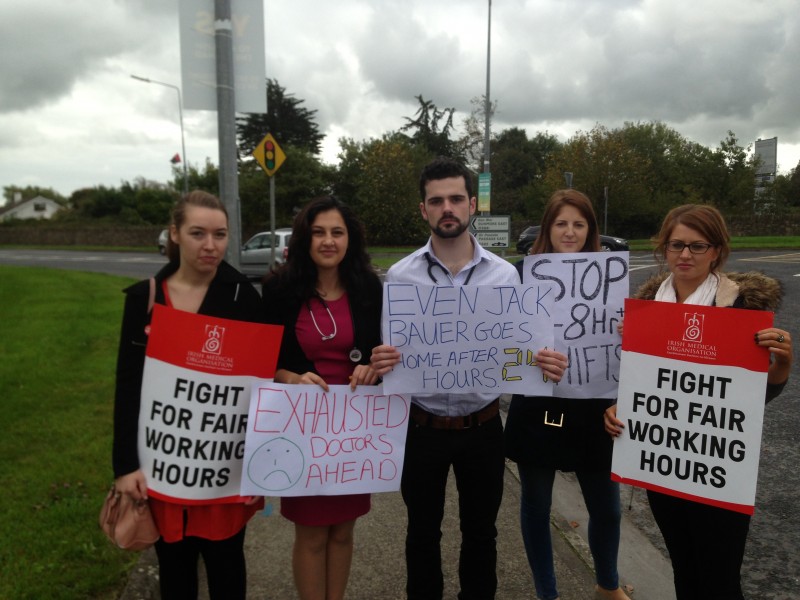Catherine Healy
News Editor
A significant number of medical students at Trinity College, Dublin see no future career for themselves in this country, according to a survey conducted by this paper last week.
Out of the 213 students that were polled, 46% indicated they were not hopeful about career prospects in Ireland after graduation, a predicament attributed by 73% of this category to working conditions. A further 25% of students said they felt unsure about the future. A majority, just over 85%, also stated that they believe newly-qualified doctors and nurses are undervalued by Irish society.
The findings come in the wake of a one-day strike by junior doctors over working conditions on 8th October. Negotiations to end the impasse between non-consultant hospital doctors (NHCDs) and the HSE were suspended last Thursday night, with talks resuming on Tuesday.
The Irish Medical Organisation (IMO) has indicated that further strikes are likely in the event that no agreement is reached. It is seeking a reduction in the working week of junior doctors to 48 hours and an end to shifts lasting over 24 hours.
Among the junior doctors who took to the picket lines outside 51 hospitals around the country last week was Lylas Aljohmani, the former Assistant Campaign Officer for Trinity College Students’ Union (TCDSU) who ran for the position of SU President last year. Since graduating in May, she has been working in Waterford Regional Hospital, the same hospital which came under scrutiny early last week following the revelation that one of its junior doctor had collapsed after working 60 hours without a break.
In an interview with Trinity News, Ms Aljohmani discussed the exhaustion and anxiety she has experienced as a result of demands placed on newly-qualified doctors. “I felt like it was my fault at the beginning,” she said. “I went into medicine to help people, but I sometimes feel like I might put someone at risk now. I got tremors from lack of sleep as I tried to put a line into a patient at 5am one night.”
On top of the regular hours they work every week, junior doctors in Ireland are routinely required to undertake a daily average of four to six hours of overtime; hours which, in some cases, are not paid for. Their working hours also include further time spent on call, during which they must be based on wards. In regional hospitals, junior doctors are usually required to be on call once a week. However, in some instances, they can be required to cover these additional hours for other staff members.
Ms Aljohmani said, “One of our junior doctors was injured last week, so I ended up working two 36 hour shifts – one on Tuesday and Thursday – on top of my regular shift and overtime work on Wednesday. When you’re on call, there might be a window between 2 a.m. and 6 a.m. to get some sleep, but it would only ever be about two hours.” During the week in question, she worked a total of 107 hours.
Ms Aljohmani sympathises with the fears that have been expressed by current medical students about their future. As a result of her long working hours, she says she has no “quality of life”, and is in the process of applying to work in either Australia or New Zealand. She has reluctantly decided to emigrate because she “can’t handle another four or five years of this.”
With another potential strike looming, the vast majority of medical students in Trinity – 93% of respondents to our poll – support continued industrial action by junior doctors.
Commenting on the survey’s findings, Domhnall McGlacken-Byrne, Faculty Convenor for Health Sciences, told Trinity News that, based on anecdotal evidence, he can say “a great deal of medical students and junior doctors are considering leaving the country, particularly for New Zealand, Australia and North America.”
He added that, “The tragedy of the whole situation arises from the mismatch between the values placed on educating students and treating them when they’re finished. Anybody who takes a stroll through the pristine dissection room and laboratories of the TBSI [Trinity Biomedical Sciences Institute] will immediately realise that Irish money is being poured into educating students who are leaving in their droves.”






